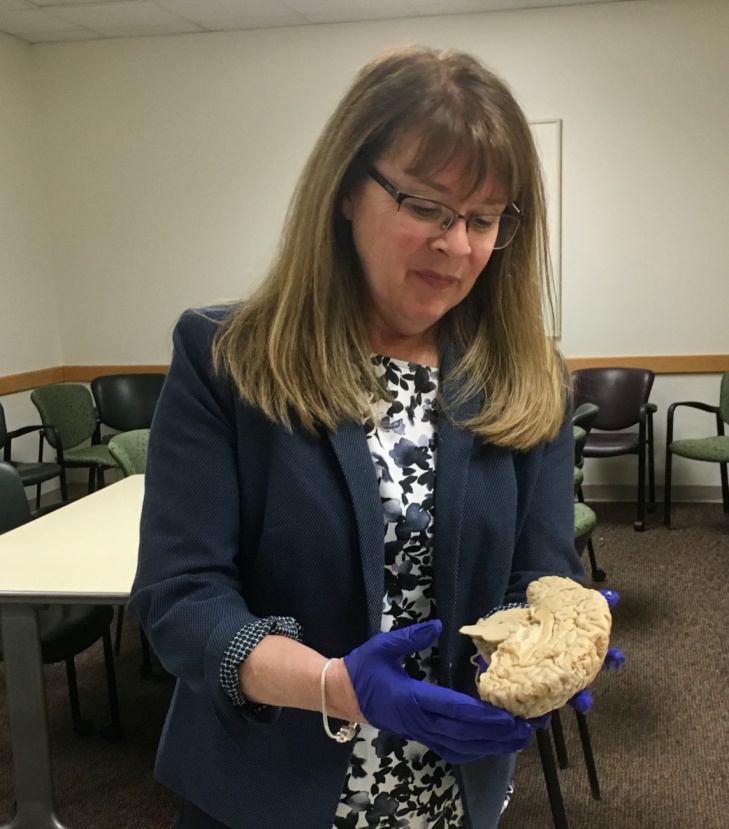It was literally a no-brain decision.
When I learned of the Wisconsin Brain Donor Program in 2014, I signed up. Having participated in the Wisconsin Registry for Alzheimer’s Prevention (WRAP) program, I know the importance of data mined from the over 1,500 adult children whose parents have an Alzheimer’s disease diagnosis. Researchers are fervent in their efforts to unlock the mysteries of why some people develop the disease and why others don’t—how to predict and potentially prevent the disease.
Since 2002 I have undergone cognitive testing; MRIs; PET scans; lumbar punctures; a Fitness, Aging, and the Brain study; blood collection; and more as part of WRAP, the largest longitudinal study of factors (biological, medical, environmental, and lifestyle choices) that increase a person’s risk of developing Alzheimer’s disease. Committing to donate my brain upon death seems like the perfect final gift as a human test subject. Signed, sealed, done.
A better understanding of that commitment came about a year ago. I was one of several speakers at a continuing education seminar at UW Hospital in Madison. Also on the agenda was a session focused on the brain, and the presenters graciously allowed me to attend.
There was an aura of reverence walking into the room where a human brain lay on the table. Following an upbeat presentation by the scientists, expressing gratitude to individuals who donate of themselves, participants were invited to come forward to look more closely and touch the brain.
Holding the three-pound brain in my hands, I was overcome with emotion and respect. The brain housed everything the person had ever seen, heard, and felt. Who was this person? What kind of life had this brain experienced?
Are there plaques and tangles present in my brain that will lead to Alzheimer’s in my future? I hope not, and I vigorously embrace new emerging research findings about exercise and healthy eating in an effort to ward it off. Upon my death and brain autopsy, my family will know the pathology of my brain for sure. In the meantime, I’m on a fast track to keep my brain healthy, get quality sleep, and pack in as many happy memories as possible.
–Jo Hillman, Associate Producer
NOTE: The Wisconsin Brain Donor Program is a repository for brain tissues collected for the purpose of research. The Wisconsin Brain Donor Program (WBDP) collaborates with the Wisconsin Comprehensive Memory Program, the Wisconsin Alzheimer’s Institute, the Wisconsin Alzheimer’s Disease Research Center, and the interested public across the state. [www.adrc.wisc.edu/brain-donation]
